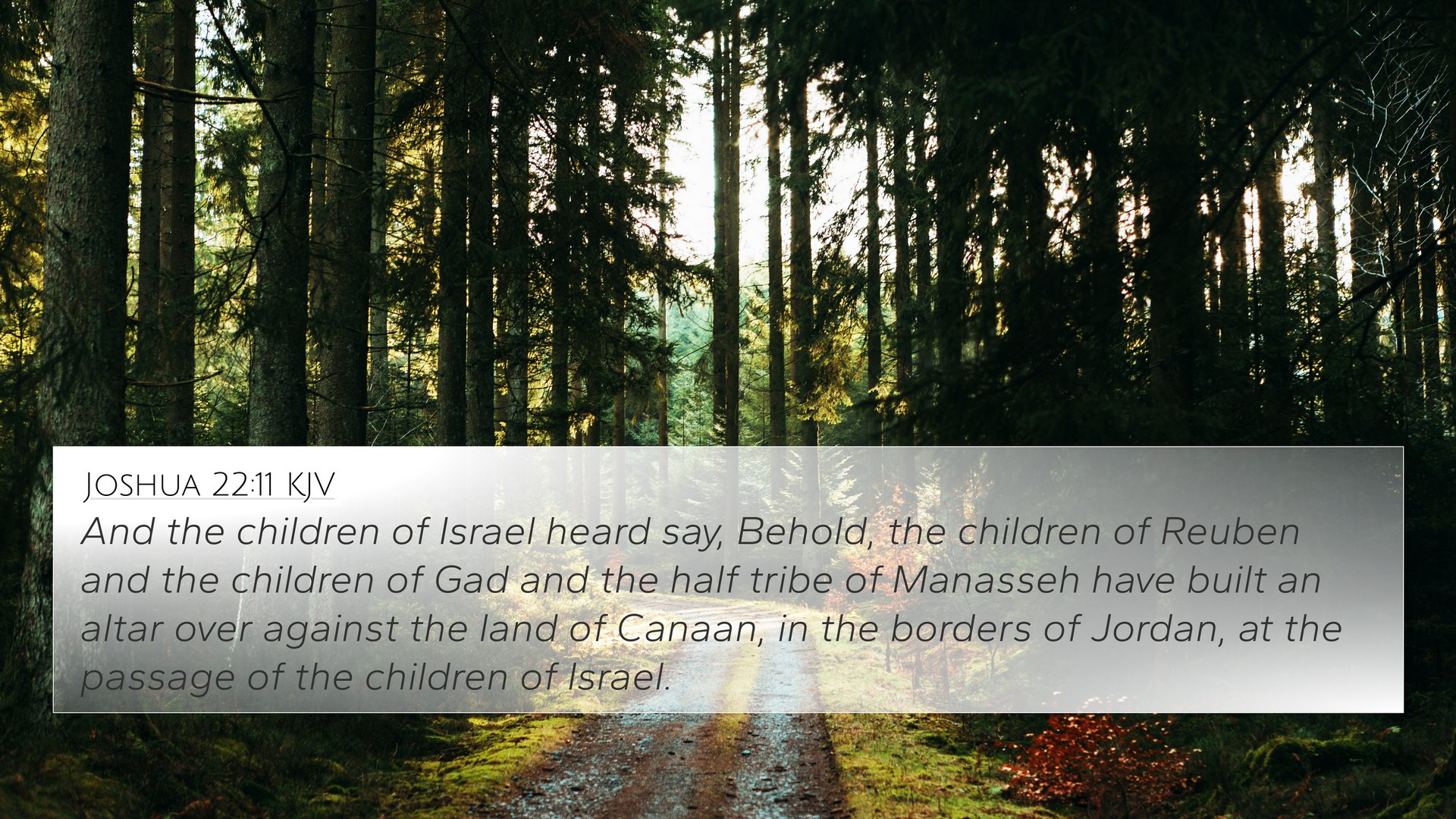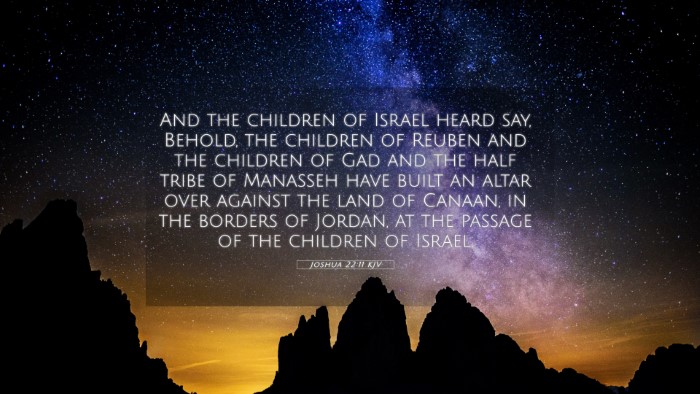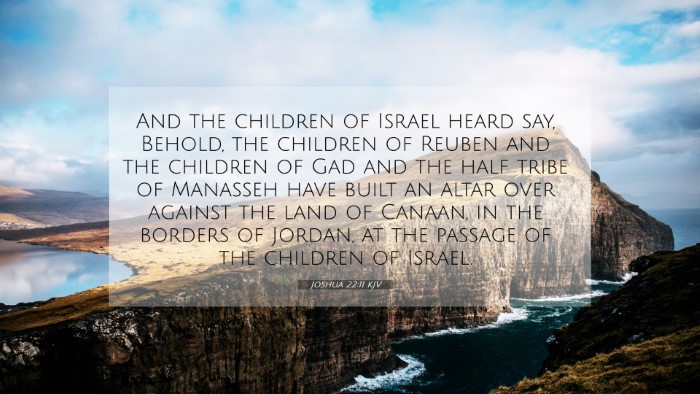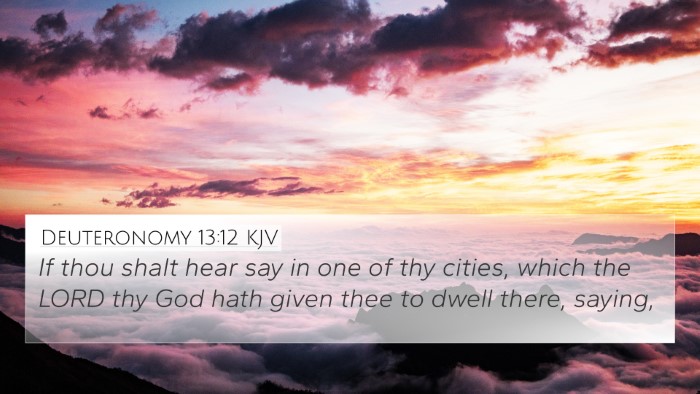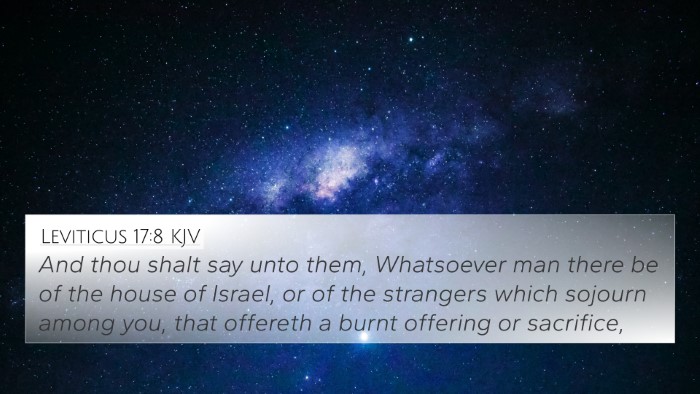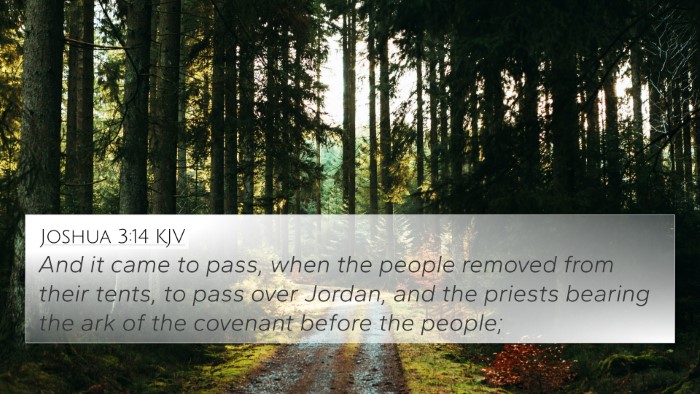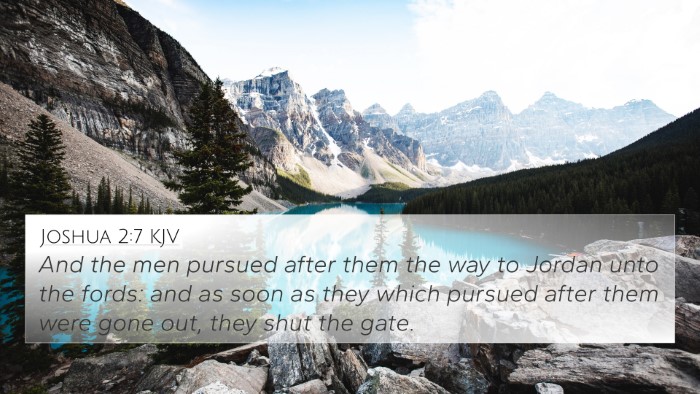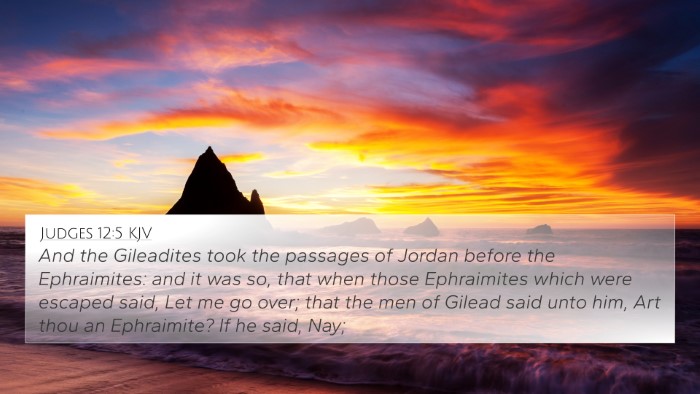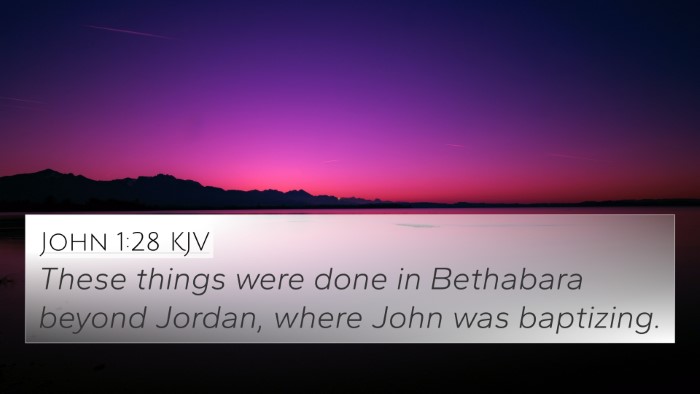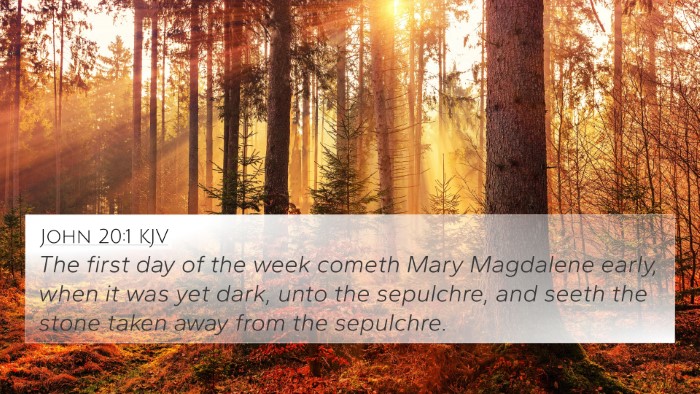Understanding Joshua 22:11
Joshua 22:11 states: "And the children of Israel heard say, Behold, the children of Reuben and the children of Gad and the half tribe of Manasseh have built an altar over against the land of Canaan, in the borders of Jordan, at the passage of the children of Israel." This verse captures a significant moment in Israel's history as it reflects on the unity and potential division among the tribes, highlighting a critical theme of community and worship in the life of Israel.
Contextual Overview
To fully grasp the implications of this verse, it is essential to understand the historical context of the Israelites during the conquest of Canaan. After receiving their inheritance, the tribes of Reuben, Gad, and the half-tribe of Manasseh, settled on the east side of the Jordan River. Despite their separation from the majority of Israel, they were still part of the original covenant community.
Insight from Public Domain Commentaries
Multiple commentaries shed light on the meaning and implications of Joshua 22:11:
-
Matthew Henry: Observes that the construction of the altar by the two and a half tribes was a misunderstood action that could cause division and conflict if not approached with wisdom. Henry emphasizes the importance of maintaining unity among God's children and the need for clear communication to avoid misunderstandings in faith practices.
-
Albert Barnes: Notes that the altar was intended to serve as a witness for the tribes separated by the Jordan; it represented a shared faith in God. Barnes points out that its construction was meant to reinforce their identity as part of Israel despite geographical separation.
-
Adam Clarke: Suggests that the altar was not an altar for sacrifices but rather a symbolic structure serving to remind the tribes of their obligations to the community and God. Clarke emphasizes the implications of such actions on a communal level, illustrating how physical structures can evoke profound theological and relational meanings.
Thematic Connections
Joshua 22:11 links to various significant themes throughout the Bible, such as:
- Unity and Division: This verse illustrates the potential for division among God’s people and serves as a warning regarding how physical separations can lead to miscommunication or misinterpretation of intentions.
- Covenant Relationships: The altar reflects ongoing relationships with each tribe signifying their commitment to God collectively, regardless of their location.
- Worship and Idolatry: The construction of the altar raises critical questions about the right way to worship and the risks of idolatry when practices diverge from God’s commandments.
- Community Accountability: This incident reminds the Israelites of their responsibility to one another, symbolizing broader ideas about interdependency among believers.
Cross-Referenced Bible Verses
Joshua 22:11 has multiple connections with other scripture that can enrich understanding:
- Exodus 20:24: The command to build altars for worship emphasizes the importance of how worship is conducted.
- Leviticus 17:8-9: It illustrates the necessity of a singular place of worship, which becomes critical to understanding the intent behind the altar.
- Deuteronomy 12:5-14: Discusses the centralization of worship and God’s desire for a singular place where He can be worshiped.
- Judges 21:5: Highlights the community's need for unity and the importance of oaths taken—paralleling the seriousness of communal actions.
- Hebrews 10:24-25: Stresses the importance of assembly and encouraging one another, correlating with the need for unity and congregation today.
- 1 Corinthians 1:10: Paul speaks about the necessity of unity among believers, reflecting the communal struggles faced historically by the Israelites.
- Philippians 1:27: Encourages believers to stand firm in one spirit, relating to the unity theme observed in Joshua 22:11.
Practical Application
Believers today can learn valuable lessons from Joshua 22:11. The responsibilities of maintaining unity, clear communication, and contextual understanding within their faith communities are crucial. Furthermore, this verse reminds individuals to reflect on the ways in which physical symbols (like churches, altars, or gatherings) can reveal deeper spiritual truths about their commitments to God and each other.
Conclusion
Joshua 22:11 serves as a powerful reminder of the complexities of community, worship, and faithfulness. By examining the historical context, thematic elements, and cross-references, one can appreciate how this verse informs contemporary Christian practice, urging believers toward unity and faithful witness.
Resources for Further Study
For those interested in deepening their understanding of this verse and others, consider utilizing tools for Bible cross-referencing. A Bible concordance or a cross-reference Bible study guide can facilitate a comprehensive exploration of inter-Biblical dialogue and connections. This will aid in identifying themes across both the Old and New Testaments, fostering a richer understanding of scripture.
